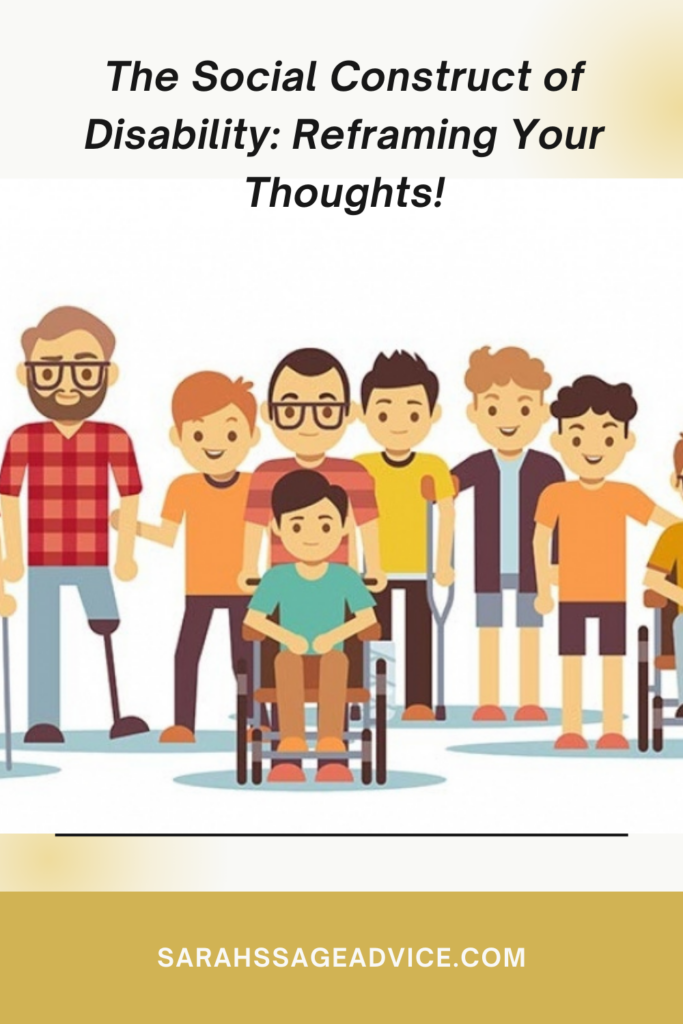There are many things we’ve known, grown up knowing, and just thought were fact, that are social constructs. Our society works in a way that tells us one thing is just the way it is when, other societies do or see things differently. For instance, gender is a social construct because biologically there are not just two sexes but many genetic possibilities. What it means to be feminine, and masculine is a social construct because those definitions differ depending on the society and culture you’re in. This is true also for disability. What is considered a disability depends on society and is made true by the norms and practices of society.
So, what is the social model of disability?
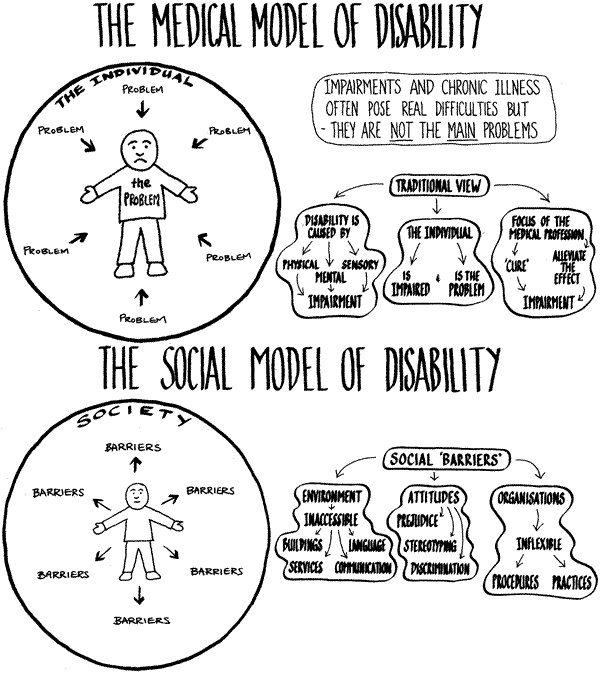
The social model of disability is a way of viewing the world. It says that people are disabled by barriers in society not their impairment or difference. Barriers can be physical, like buildings not having ramps and only stairs, or they can be attitude differences assuming disabled people cannot do certain things.
How does this differ from the medical model of disability?
The medical model of disability puts all barriers and impairments for a person to be included and receive equality on themselves. They are disabled because of their physical, mental, sensory needs or other differences/impairments. The individual is impaired, and the focus of the medical profession is to cure or alleviate the effect of the impairment.
Why do I care about semantics of the word disability?
Two years ago, my oldest child was diagnosed with Autism Spectrum Disorder. Since her diagnosis I’ve taken deep dives into everything I can learn about Autism, the autistic community, what is accepted and what isn’t. One thing I never considered was disability. The word alone.
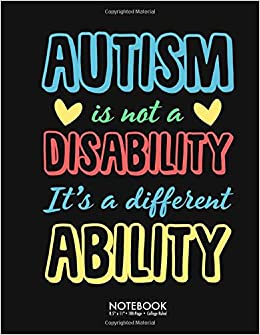
I have seen over social media, Etsy stores, small shops, etc, shirts and other merchandise that says “It’s not a disability it’s a different ability” regarding autism. But disability isn’t a bad word.
I never considered it as I grew up, went to school, studied in college, and worked jobs after school. We are ever so slyly trained into different is bad and disability is bad, because if you are disabled in some way you are not worthy. This is society and admittedly a lot of it is capitalist society issues. Because if you’re so disabled you cannot contribute to society in the usual expected ways by holding down a job, working a 9-5 traditional job, and functioning just like everyone else then something must be wrong.
This has become ever more apparent over the last year and half.
As of August 23, 2021 the United States has lost 628,000 people due to the Covid pandemic. As more deaths happen, numbers rise, the common argument heard is “how old were they?” and “Did they have any underlying conditions?” Because those with some sort of underlying condition, health issue or disability is less worthy of mourning, concern, and a society protecting their well-being.
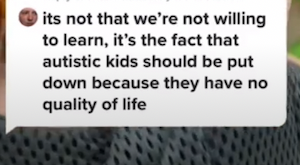 As I, and many other mothers, share our life, and our children’s lives on social media we see comments such as “It’s not that we’re not willing to learn, it’s the fact that autistic kids should be put down because they have no quality of life.” I’d like to believe that this was a rare occurrence, but I know it is not and it is disheartening. I do not receive these comments too often but just because I do not have a huge platform on social media channels. Many other parents and adult autistic creators do and I know they receive comments like these daily.
As I, and many other mothers, share our life, and our children’s lives on social media we see comments such as “It’s not that we’re not willing to learn, it’s the fact that autistic kids should be put down because they have no quality of life.” I’d like to believe that this was a rare occurrence, but I know it is not and it is disheartening. I do not receive these comments too often but just because I do not have a huge platform on social media channels. Many other parents and adult autistic creators do and I know they receive comments like these daily.
So why are people so hard pressed to assume someone is not worth living if they have a disability?
We’ve been trained and society has told us disability is bad, but the disabled community is working to change that. Working to change the negative connotation to “disability,” looking to change societal barriers that cause disability, looking to normalize asking for accommodations and not receiving judgment and scorn in return, and looking to make sure they’re still seen as valuable and worthy of protection and life.
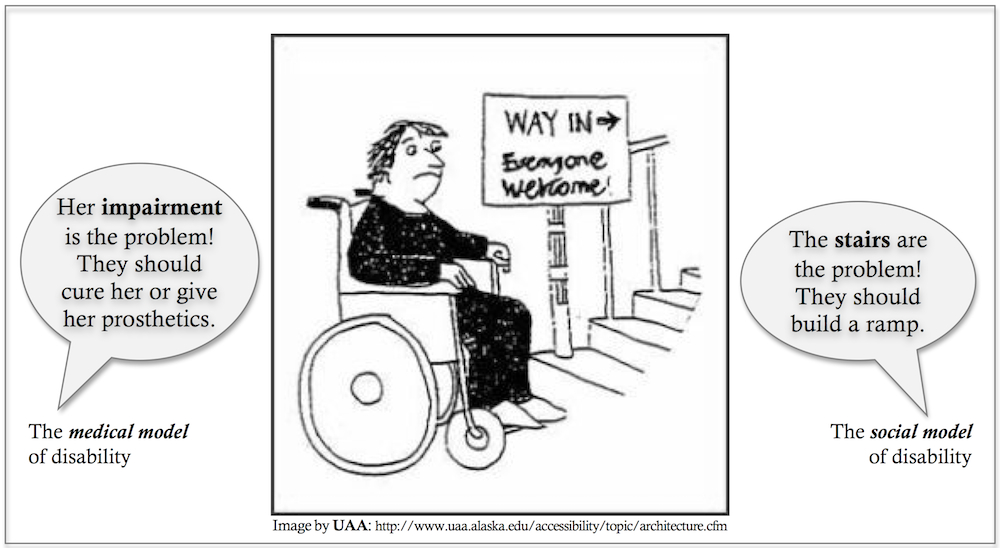
What should you take away from this lesson on disability?
How do you perceive someone else that might need a little more help? Do you perceive them as lazy or unworthy? Do you think they’re weird? Have you ever sat back and watched the child in a store having a meltdown and just thought “damn that child is a spoiled brat” before thinking “perhaps they have a disability, how can I help?” Stop, think, and see how you can deconstruct your own thoughts. How do you have internalized ableism? And if you don’t know, ask me anything. I’ll be glad to discuss.
Sarah
Similar Posts:
Common Misconceptions About Autism
I Am Not An Autism Mom, I Am a Mother of An Autistic Daughter
Show Me One Person Cured of Autism…. I’ll Wait!
